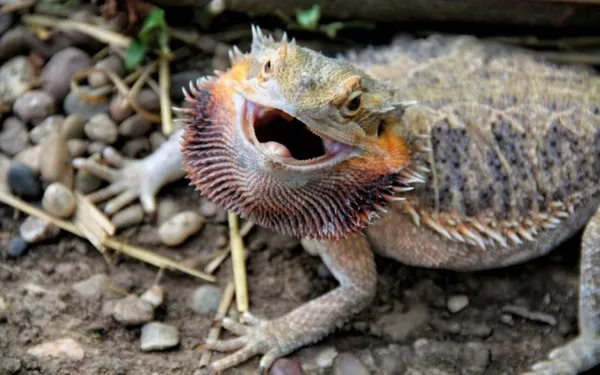Bearded dragons, beloved for their unique personalities and captivating appearance, are popular reptile companions. As responsible owners, it is crucial to provide them with a balanced and nutritious diet. One common question that arises is whether bearded dragons can safely consume purple grapes. In this article, we will delve into the dietary considerations for bearded dragons, exploring the potential benefits and risks associated with feeding them purple grapes.
Understanding Bearded Dragons’ Dietary Needs:
Bearded dragons, scientifically known as Pogona vitticeps, are omnivorous reptiles with specific dietary requirements. Their diet typically comprises insects, vegetables, and fruits. Achieving the right balance of nutrients is crucial to their overall health, growth, and well-being.
Nutritional Composition of Purple Grapes:
Before incorporating any new food into a bearded dragon’s diet, it is essential to understand its nutritional composition. Purple grapes are rich in essential vitamins and minerals, including vitamin C, vitamin K, potassium, and antioxidants. However, the sugar content in grapes, primarily fructose, raises concerns about their suitability for bearded dragons.
Balancing Sugar Intake for Bearded Dragons:
While bearded dragons can benefit from the vitamins and antioxidants found in purple grapes, it is crucial to monitor their sugar intake. Excessive sugar consumption can lead to health issues such as obesity and metabolic disorders in these reptiles. Therefore, moderation is key when introducing grapes or any fruit into their diet.
Feeding Guidelines for Bearded Dragons:
Bearded dragons thrive on a diverse diet that mimics their natural food sources. The majority of their diet should consist of high-calcium vegetables and a variety of insects. Fruits, including grapes, should be offered occasionally and in moderation. Owners must strike a balance to ensure their bearded dragons receive the necessary nutrients without overindulging in sugary treats.
Benefits of Including Purple Grapes in Bearded Dragons’ Diet:
When given in moderation, purple grapes can offer several health benefits to bearded dragons. The antioxidants present in grapes contribute to overall well-being, supporting their immune system and providing a source of hydration. Additionally, the natural sweetness of grapes may entice picky eaters to diversify their diet.
Potential Risks of Feeding Grapes to Bearded Dragons:
Despite the potential benefits, there are risks associated with feeding grapes to bearded dragons. The high sugar content may lead to obesity and metabolic issues if consumed excessively. Furthermore, bearded dragons might face digestive challenges due to the fibrous skin and seeds of grapes. Careful preparation and monitoring are essential to mitigate these risks.
Preparation and Serving Suggestions:
To minimize potential risks, bearded dragon owners should prepare grapes thoughtfully. It is advisable to remove the skin and seeds, serving only the fleshy interior. Additionally, grapes should be cut into small, bite-sized pieces to prevent choking hazards. Careful attention to serving size and frequency is crucial to maintaining a balanced diet.
Monitoring Bearded Dragons’ Health:
Owners should closely observe their bearded dragons for any signs of distress or changes in behavior after introducing grapes to their diet. If there are adverse reactions such as lethargy, diarrhea, or difficulty in passing stool, it is imperative to consult a veterinarian promptly. Regular check-ups ensure that any dietary adjustments align with the specific needs of individual bearded dragons.
Alternative Fruits for Bearded Dragons:
For owners who prefer to err on the side of caution, there are alternative fruits that can be incorporated into a bearded dragon’s diet. Fruits such as berries, melons, and papayas offer a variety of flavors and nutrients without the potential risks associated with grapes. Experimenting with different fruits allows owners to cater to their bearded dragon’s preferences while maintaining a balanced diet.
Conclusion:
In conclusion, the inclusion of purple grapes in a bearded dragon’s diet can be a viable option when approached with caution and moderation. Understanding the nutritional content, potential benefits, and risks associated with grapes enables responsible ownership. Striking a balance between variety and moderation ensures that bearded dragons thrive in a well-rounded and nourishing environment. As with any dietary changes, consultation with a veterinarian is recommended to tailor feeding guidelines to the unique needs of individual bearded dragons.
Related Topics:
What does bearded dragons like to eat?
What can juvenile bearded dragons eat?
How old do bearded dragons live to?


























